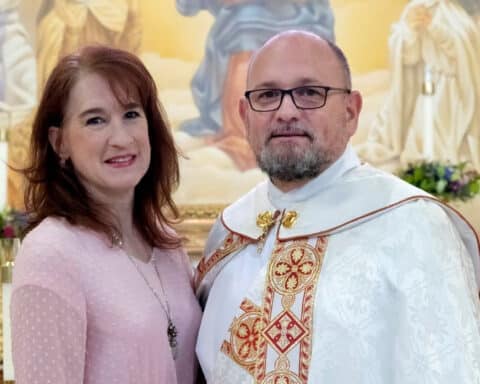
It was an interesting read, well-written and personal. It was also, as you can imagine, oh, so very sad.
Throughout the piece, the writer, who identifies herself as a lapsed Catholic who hasn’t attended Mass since 2012, tells the tale not only of her drift from the Church but of the years that came before: years of rote sacraments, ungrounded family ritual and begrudgingly attended religious education classes.
She now describes herself as a pro-abortion feminist who is tired of carrying around her Catholic guilt and of belonging to a Church that casts women as “second-best.” She mulls over the idea of “self-excommunication” as if it were synonymous with canceling her gym membership rather than what it really is — a conscious decision to reject the sacraments and to fracture her relationship with Christ and the Church.
Though excommunication is the most severe penalty within the Church, it is meant to be a penalty born out of love rather than vindictiveness. The separation from the sacraments is seen as so extreme and so undesirable that it ideally is seen as a method of “shocking” the person back into faith. It’s a loving call to repentance and conversion. Unfortunately, for the writer pondering her own excommunication, that strategy seems less than persuasive.
While seemingly taken to an extreme, this story is, sadly, not all that unique. Young people are leaving the Church at an astounding rate for a variety of reasons, many of which stem from lack of understanding of Church teaching, the influence of the culture or the Church’s own self-inflicted wounds, most notably the clergy sexual abuse crisis, though there are others, too. They are convinced that the Church no longer fits into their enlightened world view, and the result is to abandon ship.
And we, too often paralyzed by our inability to articulate why they should stay, just let them go.
I found myself reading the article wondering what words I could find to describe the tragedy behind what the author is proposing. How, in choosing to leave behind the Church, she becomes separated from all her life could and should be — from the plan that God has for her, from the woman he created her to be. There will be accomplishment without fulfillment; there will be happiness without joy. But mostly, whether she knows it or not, her life will lack true meaning. For we were created to be in relationship with Christ.
But the Church also teaches that God’s mercy is wide and deep. He alone knows what is in the hearts of his sons and daughters, and he alone will judge each individual accordingly. Let’s pray for her, then, and for all who have left the Church, that they may find their way home to the Lord who is the way, the truth and the life.





